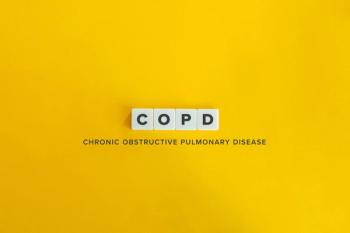
Adverse Effect Burdens of OCS, ICS Use in Asthma
Adverse effects of oral and inhaled corticosteroid use may impact quality of life for people with asthma.
People with asthma using oral (OCS) or inhaled corticosteroid (ICS) treatments may experience burdensome adverse effects (AEs) that may not stop therapy use, but can affect quality of life, according to research published in the Annals of Allergy, Asthma, & Immunology.1
For people treated for asthma, OCS and ICS are commonly prescribed treatment options but the AEs associated with these treatments may not be tolerable for some patients. Localized effects such as candidiasis and dysphonia are associated with ICS use while more systemic outcomes may be associated with OCS use. Optimal asthma-specific quality of life is measured using several contributing factors such as social impact, emotional well-being, symptomology, and functional status; however, there is currently no agreement on the vital components of an asthma-specific tool for measuring quality of life. Additionally, there is still a lack of knowledge on the burden of AEs from the patient perspective on quality of life and its effects on treatment decision-making in individuals with asthma.
To address this knowledge gap, a team of investigators conducted a study “to utilize a convergent mixed methods approach to qualify the AE burden from short- and intermediate-term OCS and ICS use and conduct qualitative focus groups to better understand the impact of AEs on patient [quality of life] among adults with asthma.”
The researchers developed a survey to determine which AEs of ICS and OCS use were most burdensome. Of the 192 respondents, 124 met prespecified inclusion criteria; 81% of participants were between ages 35 and 74 years old, 85% were cis-female, and 95% had an asthma diagnosis. All respondents lived in either the United States (78%) or the United Kingdom (22%). Of the cohort, 82 people reported using short-course OCSs (£30 days) in the past 12 months, 42 people reported using long-course OCSs (>30 days) in the past 12 months, and 105 people noted daily ICS use.
Participants taking OCSs noted that the most burdensome AEs were weight gain/obesity (mean rating, 3.77/5) , decreased bone mineral density (mean rating, 3.68/5), and infectious complications (mean rating, 3.61/5) . In contrast, elevated blood pressure (mean rating, 2.73/5), skin effects (mean rating,2.62/5), and diarrhea (mean rating, 2.39/5) were noted to be the least burdensome AEs reported.
Participants taking ICSs noted that the most burdensome AEs included pneumonia (mean rating, 3.19/5), hoarse voice (mean rating, 3.14/5), and oral thrush (mean rating, 3.09/5). Cough with inhalation (mean rating, 2.46/5), tongue enlargement (mean rating, 2.42/5), and nose bleeds (mean rating, 2.39/5) were the least burdensome AEs reported for ICS use.
Results from collecting qualitative data on asthma treatment found that participants who used OCSs were mostly burdened by weight gain and lack of sleep while participants taking ICSs more often noted social stigma, such as embarrassment for needing to use their ICS in front of others.
Of note, a study limitation was the lack of in-depth patient demographics in the qualitative or quantitative metrics, which made considering patient individuality challenging. Other study limitations included small sample size; lack of consideration for ethnicity and race, which may have led to a bias towards Western perspectives; asthma severity; lack of documentation for previous AEs in participants; and lack of documentation on strategies used to mitigate treatment-associated AEs.
“Further understanding of patient perception can assist in better characterization of asthma-specific [quality of life] as a clinical outcome, importantly with incorporation of the medication AE burden,” the investigators wrote.
“Closer collaboration and direct communication between healthcare providers and patients will allow for greater understanding of the effects of asthma interventions on patients’ [quality of life] and most accurately capturing the burden of asthma,” they concluded.
Reference
1. Persaud PN, Tran AP, Messner D, et al. Perception of burden of oral and inhaled corticosteroid adverse effects on asthma-specific quality of life. Ann Allergy Asthma Immunol. Published online August 27, 2023. doi:10.1016/j.anai.2023.08.595
Newsletter
Pharmacy practice is always changing. Stay ahead of the curve with the Drug Topics newsletter and get the latest drug information, industry trends, and patient care tips.























